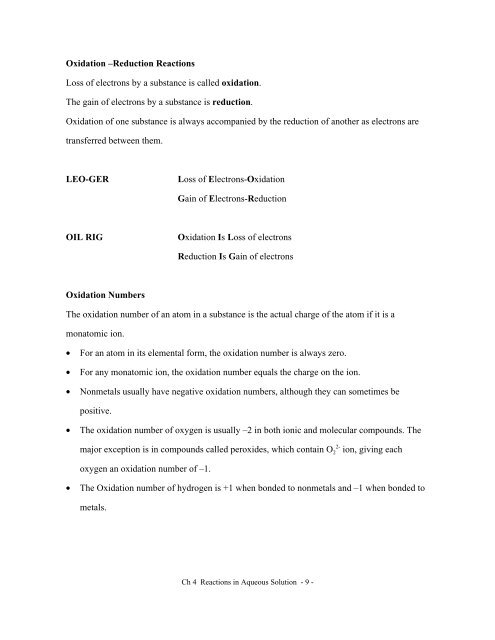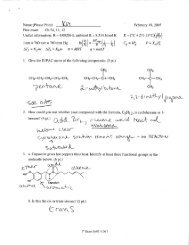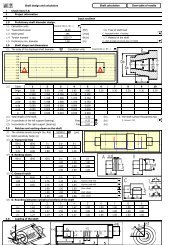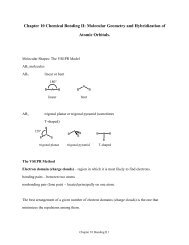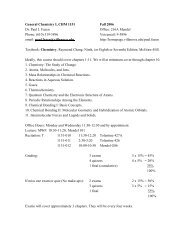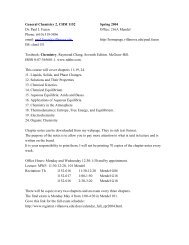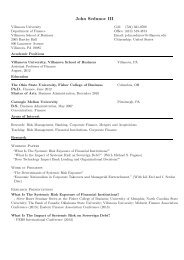Chapter 4 - Reactions in Aqueous Solution
Chapter 4 - Reactions in Aqueous Solution
Chapter 4 - Reactions in Aqueous Solution
Create successful ePaper yourself
Turn your PDF publications into a flip-book with our unique Google optimized e-Paper software.
Oxidation –Reduction <strong>Reactions</strong>Loss of electrons by a substance is called oxidation.The ga<strong>in</strong> of electrons by a substance is reduction.Oxidation of one substance is always accompanied by the reduction of another as electrons aretransferred between them.LEO-GERLoss of Electrons-OxidationGa<strong>in</strong> of Electrons-ReductionOIL RIGOxidation Is Loss of electronsReduction Is Ga<strong>in</strong> of electronsOxidation NumbersThe oxidation number of an atom <strong>in</strong> a substance is the actual charge of the atom if it is amonatomic ion.• For an atom <strong>in</strong> its elemental form, the oxidation number is always zero.• For any monatomic ion, the oxidation number equals the charge on the ion.• Nonmetals usually have negative oxidation numbers, although they can sometimes bepositive.• The oxidation number of oxygen is usually –2 <strong>in</strong> both ionic and molecular compounds. Themajor exception is <strong>in</strong> compounds called peroxides, which conta<strong>in</strong> O 2- 2 ion, giv<strong>in</strong>g eachoxygen an oxidation number of –1.• The Oxidation number of hydrogen is +1 when bonded to nonmetals and –1 when bonded tometals.Ch 4 <strong>Reactions</strong> <strong>in</strong> <strong>Aqueous</strong> <strong>Solution</strong> - 9 -


